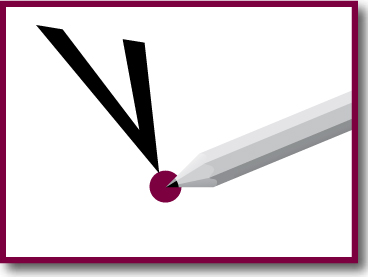Contributing Editor Vlada Limic is warming to her theme from her March 2014 and June/July 2014 columns: a workshop that enables more (actual) work to be done…
I am eager to continue with the program set in my previous columns. Before this, let me mention that a statistician colleague responded to my last column, and described their experience with running high profile workshops in a mathematics institute in the US. It does not come as a surprise that our frustration is shared. In fact, let me bravely extrapolate: even if our direct experience is tied to probability or statistics workshops only, I doubt that there is a mathematics (or related field) discipline where the phenomenon of a “showcase” type workshop (see my June/July issue column) is not overwhelmingly present. I would be happy to learn of the contrary.
Could the fact that we all keep participating in workshops, and that these are likely to be the only kind of workshop we see during our entire careers, imply that the showcase is the only feasible generic format for organized focused research exchanges in mathematics? I am convinced that another kind of reality is possible.
As previously announced, my hope is to soon embark on a project devoted to realizing workshops. It is an ambitious program, since nothing would change in the long run with just one different event, or even several of them—just as nothing will change with respect to the eighth continent (a.k.a. the Pacific Ocean garbage patch) problem if only some people reduce their plastic bag consumption, or even if the entire human population stops using plastic bags but only for a few days.
The following general format seems appropriate to begin with. Between five and ten peers form a group of $n$ participants (denote each person uniquely by $i\in \{1,…,n\}$). Each participant contributes an article several months in advance, and it would be best if the article is already published or at least seriously read and appreciated by an independent party before it is contributed. A cyclic permutation $\pi$ of $\{1,…,n\}$ is agreed upon by all the participants. Two cycles in $\pi$ could be interesting in the case of an interdisciplinary meeting, where about half of the group comes from each of the disciplines.
Fixed points in $\pi$, and matches where $i$ and $\pi_i$ are collaborators for some $i$, should be avoided as a rule.
In preparing for the workshop, each $i$ reads the work contributed by $\pi_i$ , and prepares a long lecture on it, while $\pi_i$ cordially helps them along the way (via discussions in person, by email, Skype or phone). The whole group finally meets for a few days or a week-
long event, during which each $i\in \{1,…,n\}$ gives the mini-course they prepared. All the lectures are given on the blackboard, while technology could be used to present images. Ideally all the peers attend all the lectures. For each lecture a third peer, called the moderator, is set by some algorithm, for example it could be $\pi \circ \pi(i)$ for lecture of $i$ on the work of $\pi_i$. Questions and answers are welcome in real time. With two experts on site (one who wrote and the other who carefully read the article), and the small and motivated audience, any confusion should be quickly and promptly cleared out of the way.
The just described setup seems convenient for getting around various problems$^1$ of SCALE and FLOW that hinder teaching and learning at workshops.
Here, $i$ can be sure to learn very well at least the work contributed by $\pi_i$, and likely more from others during the meeting. Also $i$ is encouraged to teach their contributed work to at least $\pi^{-1}(i)$, and the work of $\pi_i$ to others at the meeting.
In addition, each participant is simultaneously a co-organizer, a speaker, and a contributing author, which could be beneficial to those in need of c.v. ornaments. The obvious drawback is the amount of work involved. But this time it is not the administrative tasks (managing hotel/travel reservations, assuring coffee breaks) or grant/report writing for each particular instance of workshop that would take up considerable time and energy. The main work would be learning and teaching mathematics (or related field), done carefully, seriously and dare I say, joyfully.
My next contribution will aim to address the practical side of this program, and in particular, various challenges laying ahead that come to mind.
Your thoughts and comments are welcome, as always.
Email vlada.limic@math.u-psud.fr
$^1$ To mention a few: disproportion in numbers of participants vs. speakers, and in quantity of material presented vs. the length of time designated for lectures; having most of the time devoted to monologues and very little to questions and discussions; and self-marketing oriented presentations.

Comments on “Vlada’s Point: A WORKshop”